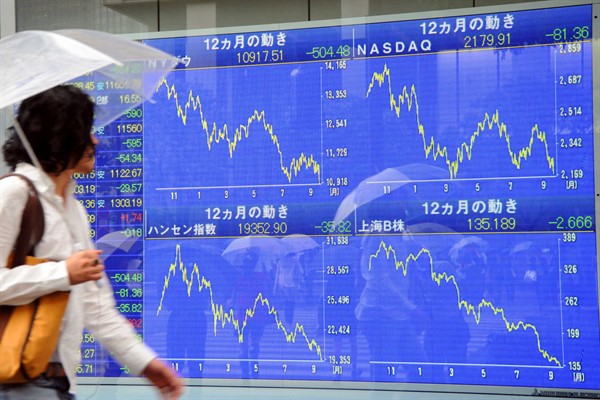Editor’s note: The following article is one of 30 that we’ve selected from our archives to celebrate World Politics Review’s 15th anniversary. You can find the full collection here.
It’s been almost five years now since the global financial and economic crisis formally began with Lehman Brothers’ filing for Chapter 11 bankruptcy on Sept. 15, 2008. In today’s fast-paced, high-tech, hyperconnected world, five years is an eternity. In autumn of that year, the iPhone was barely one year old and only in its second iteration. No one had ever shared a photo of their dessert on Instagram because the service was two years away from launch. Japan, not China, was the world’s second-largest economy. And Federal Reserve Chairman Ben Bernanke, now on the verge of retirement, was only in his second year on the job.
In some respects, the crisis seems like ancient history already. And yet artifacts of those first calamitous months are all around us today. Arguably the most enduring aftereffect of the crisis is the pressure on governments the world over to increase international competitiveness, generate economic growth and create jobs. These are, of course, ends to which governments always aspire. However, the universal intensity and urgency with which they have been pursued over the past five years is different, especially among the advanced industrial economies. As a result, the foci of governments’ economic policies have moved increasingly inward despite their very real global effects.

